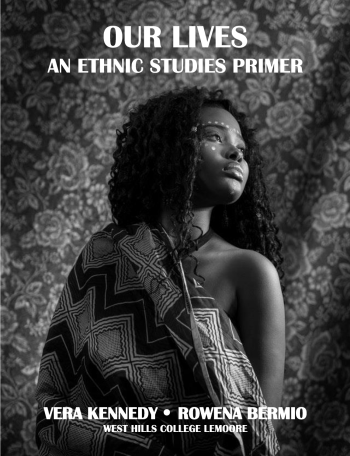[Ethnic Studies] Our Lives: An Ethnic Studies Primer
Description of the Resource:
This textbook is an introduction or primer to ethnic studies. It emphasizes an interdisciplinary study of race and ethnicity as understood through the perspectives of major underrepresented racial groups, including Native Americans, African Americans, Asian Americans, and Latinx Americans in the United States. The text examines a broad range of sociocultural, intellectual, and historical experiences that inform the construction and intersectionality of race and ethnicity. An analysis of cultural and political contexts serves to evaluate systems of power, privilege, and inequality. Emphasis is placed on racial and social justice with methods for building a just and equitable society. There are eight modules with exercises on: 1) The Significance of Ethnic Studies, 2) Our Power & Identity, 3) Our Story: Native Americans, 4) Our Story: African Americans, 5) Our Story: Asian Americans, 6) Our Story: Latinx Americans, 7) Our Divisions, and 8) Our Way Forward.
How This Resource Integrates Diversity, Equity, and Inclusion Principles and Practices:
This resource integrates diversity, equity, and inclusion principles by intentionally incorporating the voices and experiences of faculty members from marginalized groups, including adjunct faculty, who are often underrepresented in OER publications. By featuring their stories throughout the text, the resource diversifies perspectives and challenges the traditional academic narrative that often overlooks the contributions of marginalized educators. This approach helps students see themselves reflected in the content and encourages a stronger connection with their faculty members, promoting equity in representation and creating an inclusive learning environment.
Additionally, the text is freely available online, removing financial barriers for students, particularly those from low-income backgrounds. It is created with UDL principles to ensure accessibility for all students, including those with disabilities. The adaptable nature of the text allows educators to tailor content to reflect the cultural and linguistic diversity of their students, while also highlighting underrepresented voices and perspectives. Developed by a diverse community of educators, the text serves as a starting point for discussions on complex social issues, promoting critical thinking and a deeper appreciation of diversity among students. This collaborative and inclusive approach enriches the content and empowers both contributors and learners alike.
Tips, Tricks, and Advice from the Faculty Author(s) Regarding OER Creation:
- Focus on student learning outcomes and concept-based learning
- Address what students need at the next academic level or employment
- Customize topic, materials, and content to your discipline and class
- Include student identities, narratives, perspectives, and experiences
Check out the OEG Voices Podcast: Vera Kennedy and Rowena Bermio on the Ethnic Studies Primer Open Textbook!
 Author(s): Vera Kennedy and Rowena Bermio
Author(s): Vera Kennedy and Rowena Bermio